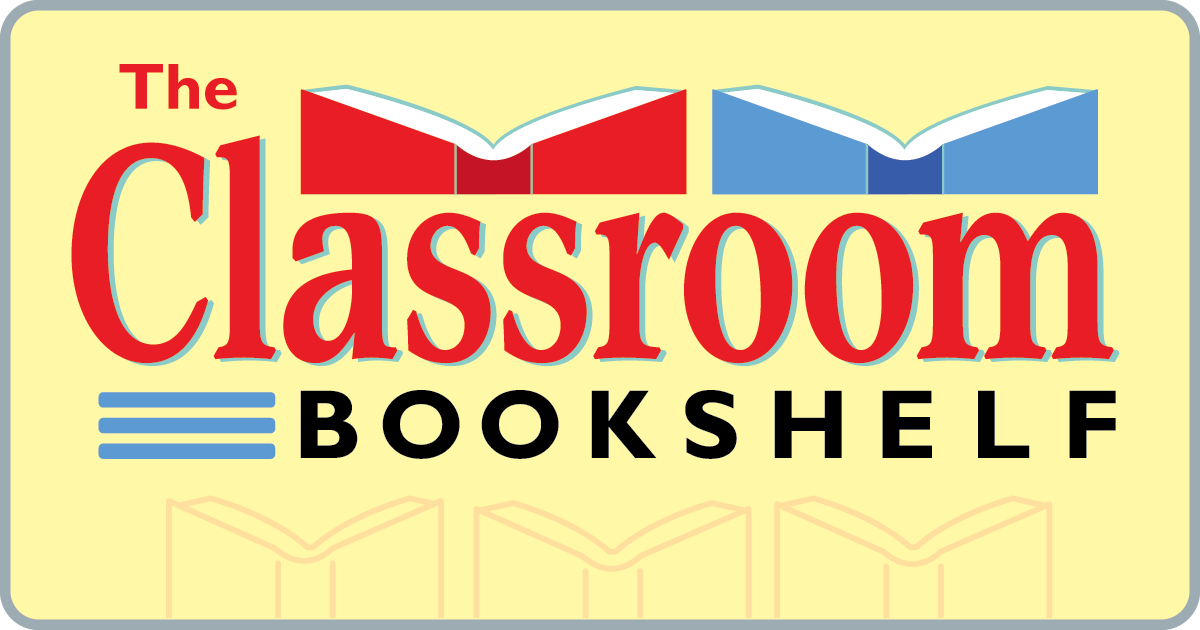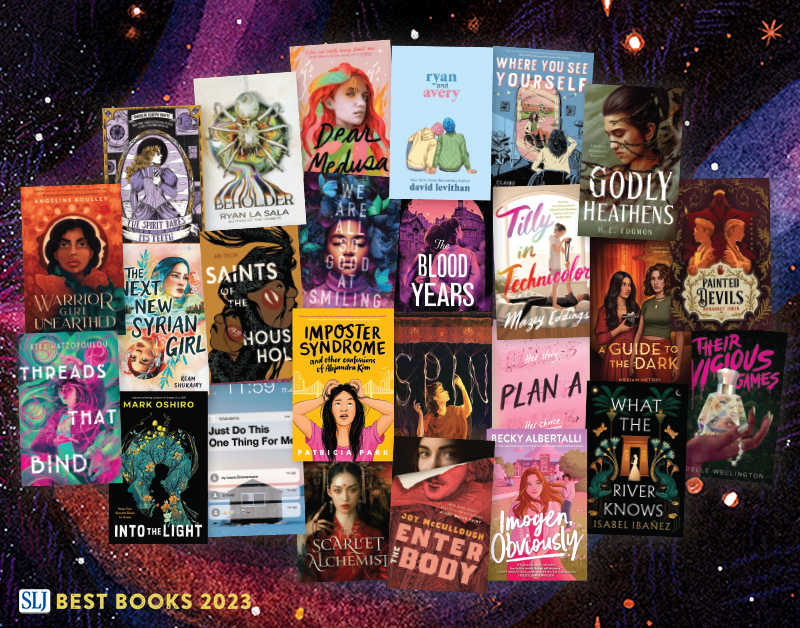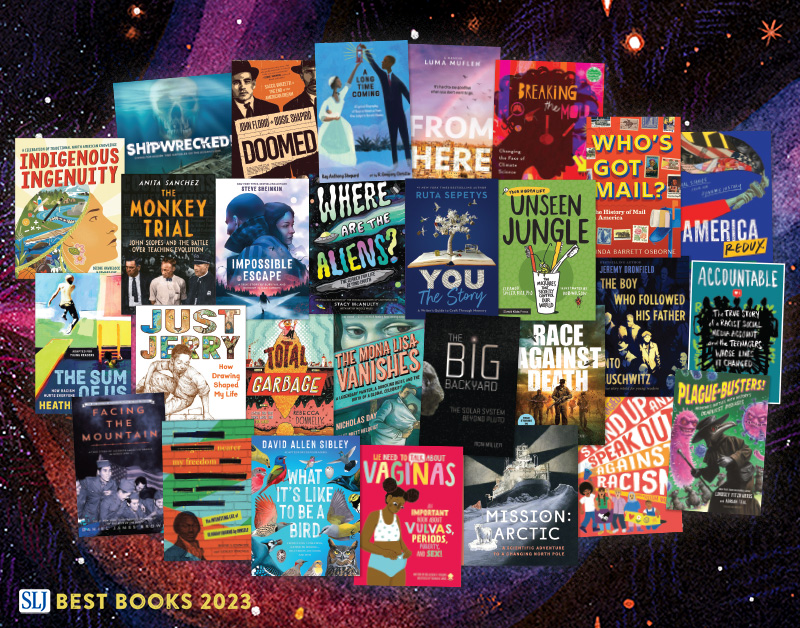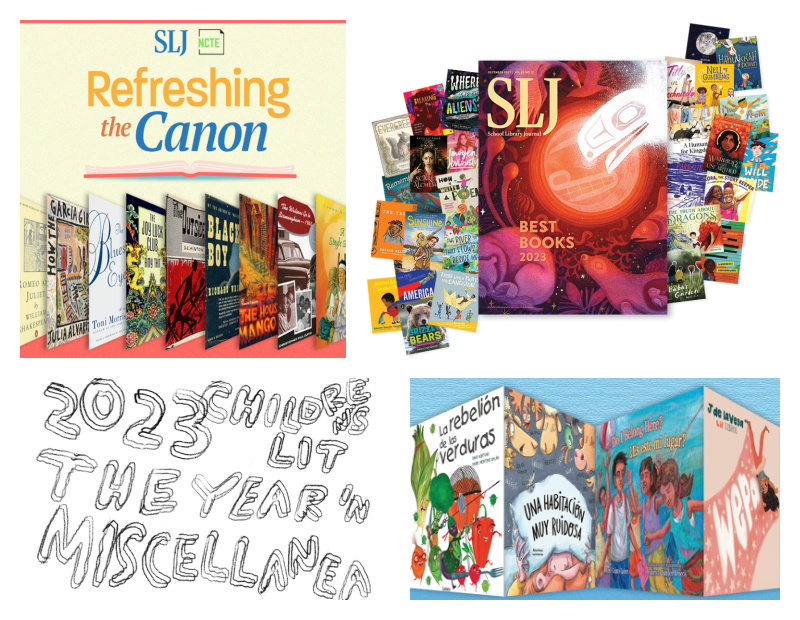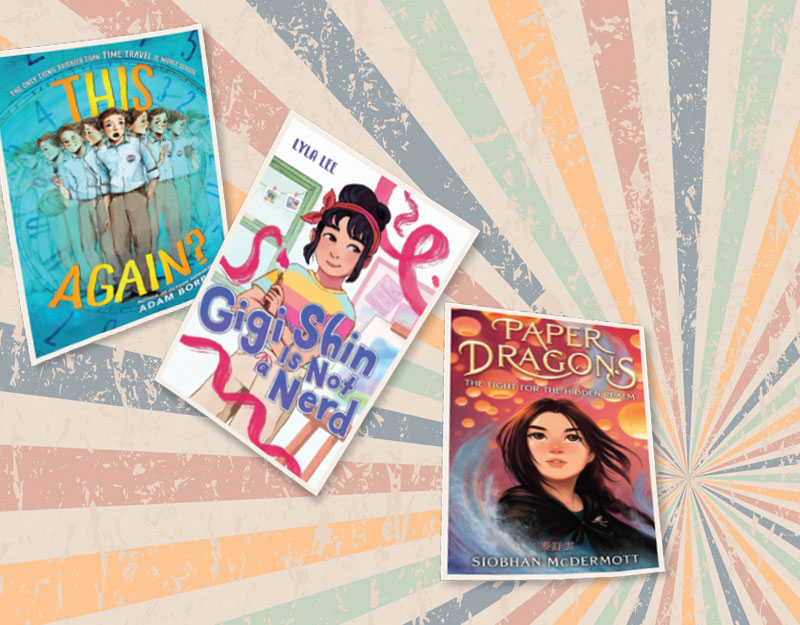Explore the Power of a Single Word in Dictionary for a Better World

Dictionary for a Better World: Poems, Quotes, and Anecdotes from A to Z
Written by Irene Latham & Charles Waters
Illustrated by Mehrdokht Amini
Published by Carolrhoda Books, 2020
Book Review
The power of the single word holds center stage in this creative collaboration by renowned children’s poets Irene Latham and Charles Waters. In Dictionary for a Better World, Latham and Waters spotlight words that work to promote understanding, empathy, equity, peace, and social justice.Arranged alphabetically, as dictionaries are, each word is explored on a double-page spread through a unique poetic form, a reflective quote by a notable figure, a comment by the authors, and a suggestion for young readers for translating the word into action. For example, the word “Open” is elaborated upon in a shadorma poem, an inspirational quotation by poet Billy Merrell, a rumination by Waters, and the simple suggestion, “When you hear about something new to you, instead of dismissing it, try investigating it instead” (pp. 68-69). The word “Vulnerable” is extended into a gogyoshi poem, with a quote by Madeleine L’Engle–“to grow up is to accept vulnerability” (p. 97), a personal anecdote by Waters, and a suggestion for writing. Mehrdokht Amini underscores the hope and optimistic, encouraging tone of each word with brightly colored mixed-media illustrations. The back matter is just as rich in quality and utility, providing an author’s note, additional resources, an index of poetic forms used, and a gratitude list that encourages readers to again reflect on ways they can make the world a better place. A literary, artistic, and pedagogical marvel, this book can easily find a place across your curricular and social-emotional learning goals.
This book is also available on Epic.
Teaching Ideas and Invitations
A Note to our Readers: These ideas are not meant to be prescriptive. Choose one. Choose more. It’s up to you. Some ideas are bigger and will take a number of days to complete. Some are shorter. You can also choose to complete one part of a teaching idea, but not the whole thing. It’s up to you!
ADVERTISEMENT
ADVERTISEMENT
Encouragement and Inspiration Throughout the Year – Keep this volume close at hand to read aloud its entries throughout the school year. Invite students to read aloud excerpts from this book–perhaps a poem, perhaps one of the quotations–to share with the class at morning meeting or closing circle. Sharing this book and these invitations to read aloud from it is also a great way to kick off the 2021 calendar year. Select your students’ favorite lines to rewrite to post on a bulletin board, on an anchor chart, or as inspiration for writing. Return to these lines and the book often to weave encouragement and inspiration to make the world a better place throughout the year.
Creative Class Dictionaries – Use Dictionary for a Better World as a mentor text for a class authored dictionary about another topic or theme you are studying. As a class, brainstorm a list of words related to that topic to include in the dictionary. Take time to study the writing techniques, poetry forms, and other genres employed by Latham and Waters. Decide as a class which ones you’d like to include in your dictionary. You and your students might discuss the variety of poetry forms, the selection of quotes, the organizational choice to feature, and the incorporation of different kinds of back matter. Divide authorship according to students’ interests and strengths. Some students may enjoy researching quotations, others may want to write poetry, and still others may be great at coming up with suggestions for real-world applications of the word. Some students who are strong at conveying meaning through art may be tapped for illustrations. Or perhaps you may want to assign each student a word to challenge them to try all of those endeavors. Allow students time to draft, revise, and receive feedback on the work they compose related to your featured topic or theme. If you are doing hybrid or remote teaching, the final dictionary could be a multimodal project posted on Padlet or perhaps Flipgrid, or it can be a traditional paper-and-print based text.
Genre Study: Poetry Forms – Latham and Waters utilize a diverse variety of poetry forms that students rarely get to explore in school curricula, such as the cherita, the nonet, and the rondine. Engage students in an inquiry project about these different poetry forms, investigating their structural organization, linguistic features, range of content, and social purposes. Have students search for examples of each poetry form, noting which examples are their favorites and why. Other anthologies that include a variety of poetry forms include Paul Janeczko’s The Death of a Hat and Firefly July: A Year of Very Short Poems. Challenge your students to try their own hand at writing poetry in these forms. Celebrate their learning with a poetry slam or a written anthology of poems to share with friends and family.
Try It! – The suggestions for real-world application included with each dictionary entry are well suited for students to try independently or with others. Invite students to select a few of the “Try It” activities to try each week. For example, they might try the activity for “Dialogue”: “The next time you’re in a disagreement with friends, when you feel the need to chime in with an opinion, try stopping that urge and let them continue. See where it leads you.” Or try the suggestion for “Gratitude”: “Make a gratitude list of your own.” Gather in small groups or as a whole class to share what happened when they tried the suggestion. Invite students to extend their reflection into writing, visual or performance art, digital design, or another modality that captures what they felt, experienced, and learned from trying the suggestion to make the world a better place. Ask them what else they could do to deepen their understanding of the word and how it supports working toward a better world for all.
ADVERTISEMENT
ADVERTISEMENT
Reader’s Theater – The book’s use of short sections of text makes it favorable for reader’s theater activities. Poetry is often meant to be read aloud, and Latham and Waters’ personal reflections are brimming with their voices. Have your students practice reading different parts of the text aloud in small groups and then perform a poetry performance or reader’s theater version of it, depending on whether they choose to read aloud one of the poems or one of the prose excerpts, in different voices and with different intonation to hear all the ways it can be read aloud fluently.Watch the video above to hear Charles Waters read aloud the first poem in the book, “Words for a Better World,” as a warm up for their performance.
Mentor Text for Multigenre Writing – Have students name the different kinds of writing genres that are in Dictionary for a Better World, such as poetry, anecdote, and expository/informational writing. Study each piece with your class to determine the characteristics of the genres within it, and discuss how they each contribute a unique perspective when explaining the meaning of the word it’s used to describe. After studying this book, have students pick a word that is not in the book that they would like to explore and explain in different ways, such as friendship or curiosity, and then write pieces in different genres to answer it. You might want to have them work individually or in small groups to create their multigenre writing portfolios.
Illustrating Poetry – For each entry in Dictionary for a Better World, illustrator and graphic designer Mehrdokht Amini provided a unique illustration. Have your class study the illustrations, using a reference like Molly Bang’s Picture This to understand how line, color, composition, and other artistic principles enhance the meaning of a written text. Explore other ways that poetry has been illustrated in other recent poetry collections, such as Thanku: Poems of Gratitude, edited by Miranda Paul, The Proper Way to Meet a Hedgehog and Other How-to Poems, edited by Paul Janeczko, and Out of Wonder: Poems Celebrating Poets, by Kwame Alexander with Chris Colderley and Marjory Wentworth. Then have each of your students gather a few of their favorite poems and apply those principles to illustrate them. Have each student create an anthology of their illustrated poems, or have small groups individually illustrate the same poem, then compare and discuss their different illustrative interpretations. (For further support in helping students compare, contrast, and discuss illustration differences, you might try this online Pictionary game.) Create a class anthology or bulletin board, perhaps through Padlet, VoiceThread, or Flipgrid, that showcases the variety of selected poems and illustrations.
Author Study: Irene Latham and Charles Waters – This is not the first collaboration between Latham and Waters, something they discuss in the Author’s Note of Dictionary for a Better World. Additionally, each author has written books independently. With the help of a school or local librarian, gather a collection of Latham’s and/or Waters’ work, especially their poetry and collaborative pieces. Have students research their biographical information as well. What threads of their respective biographies do students see in their work? Read through their texts as a class, noting similarities and differences across the texts’ formats and styles. Take a close look at their writing techniques, noting their word choices and use of figurative language. Examine the topics and perspectives they write about in their books. Some of their works are listed below in Further Explorations, as well as each author’s website. Compile a list of the writing techniques gained from this author study and invite your students to try out some of these writing craft moves you have discussed in their own writing. You may also decide to have some students study Latham’s work and others study Waters’ work, and then have them present what they learned to each other.
Further Explorations
Online Resources
Irene Latham’s website
Charles Waters’ website
https://www.charleswaterspoetry.com/
Mehrdokht Amini’s website
Online Pictionary
https://www.ultraboardgames.com/pictionary/card-game-rules.php
Books
Alexander, K., with Colderley, C., & Wentworth, M. (2017). Out of wonder: Poems celebrating poets. Ill. by E. Holmes. Candlewick Press.
Janeczko, P. (Ed.). (2014). Firefly July: A year of very short poems. Ill. by M. Sweet. Candlewick Press.
Janeczko, P. (Ed.). (2015). The death of a hat: A brief history of poetry in 50 objects. Ill. by C. Raschka. Candlewick Press
Janeczko, P. (Ed.). (2019). The proper way to meet a hedgehog and other how-to poems. Ill. by R. Jones. Candlewick Press.
Paul, M. (Ed.) (2019). Thanku: Poems of gratitude. Ill. by M. Myles. Millbrook Press.
Filed under: Poetry, Poetry Picture Books
About Grace Enriquez
Grace is an associate professor of language and literacy at Lesley University. A former English Language Arts teacher, reading specialist, and literacy consultant, she teaches and writes about children’s literature, critical literacies, and literacies and embodiment. Grace is co-author of The Reading Turn-Around and co-editor of Literacies, Learning, and the Body.
ADVERTISEMENT
ADVERTISEMENT
SLJ Blog Network
2024 Books from Pura Belpré Winners
Passover Postings! Chris Baron, Joshua S. Levy, and Naomi Milliner Discuss On All Other Nights
Winnie-The-Pooh | Review
Parsing Religion in Public Schools
Crafting the Audacity, One Work at a Time, a guest post by author Brittany N. Williams
ADVERTISEMENT

